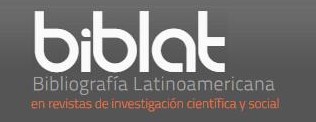Marketing y costos de calidad en el sector turístico: un análisis bibliométrico en la base de datos de Scopus
Palabras clave:
sector turístico, costos de calidad, marketing, análisis bibliométricoResumen
El sector turístico es altamente competitivo y dinámico, donde la calidad del servicio juega un papel fundamental en la satisfacción del cliente y la rentabilidad de las empresas. En este contexto, el marketing emerge como una herramienta estratégica para reducir los costos de calidad y optimizar los recursos. El objetivo de la investigación es analizar la producción científica sobre el impacto del marketing en la reducción de los costos asociados a la calidad en el sector hotelero en la base de datos de Scopus. Se desarrolló una investigación cuantitativa – descriptiva, el enfoque es retrospectivo y se implementó a partir de estudio bibliométrico en el período 1971-2023. Se utilizó la estrategia de búsqueda: “Marketing" OR "commercial management” AND "quality costs" AND “tourism sector”, de la búsqueda se obtuvieron un total de 76 investigaciones. El comportamiento de la producción científica fue muy inestable, y se evidenció un pico de cinco investigaciones en los años 1994 y 1998. El área del conocimiento más representativa fue la de negocios, gestión y contabilidad. El país con más investigaciones fue Estados Unidos con 85. La revista más citada fue International Journal of Clinical Oncology con 505 citas, siendo esta la que alcanzó mayor factor de impacto con 10,16. Se identificaron tres líneas principales de investigación relacionadas con la relación que existe entre el marketing, los costos de calidad y el sector turístico.
Citas
Arslan, I. K. (2020). The importance of creating customer loyalty in achieving sustainable competitive advantage. Eurasian Journal of Business and Management, 8(1), 11-20. https://search.proquest.com/openview/b713fccb5e654cec5a2a678a93b67e89/1?pqorigsite=
gscholar&cbl=4371414
Cartwright, S., y Davies, I. A. (2022). The development of B2B social networking capabilities. Industrial Marketing Management, 106, 139-151. https://doi.org/https://doi.org/10.1016/j.indmarman.2022.08.004
Chen, L., y Guo, Y. (2023). Revisiting resources extraction perspective in determining the tourism industry: Globalisation and human capital for next-11 economies. Resources Policy, 85, 103818. https://doi.org/https://doi.org/10.1016/j.resourpol.2023.103818
Cho, M. (2004). Factors contributing to middle market hotel franchising in Korea: The franchisee perspective [Article]. Tourism Management, 25(5), 547-557. https://doi.org/10.1016/j.tourman.2003.07.001
Conti, E., Camillo, F., y Pencarelli, T. (2023). The impact of digitalization on marketing activities in manufacturing companies. The TQM Journal, 35(9), 59-82. https://doi.org/https://www.emerald.com/insight/content/doi/10.1108/TQM-11-2022-0329
Datta, B., Sajnani, M., y Thomas, J. (2018). The decision making of business travellers in selecting online travel portals for travel booking: An empirical study of Delhi national capital region, India [Article]. Geojournal of Tourism and Geosites, 22(2), 339-346. https://doi.org/10.30892/gtg.22205-292
Dubuc-Piña, A. d.-l.-A. (2022). Marketing sensorial como estrategia persuasiva para la fidelización del cliente en el sector de servicios. Revista Arbitrada Interdisciplinaria Koinonía, 7(13), 53-71. https://doi.org/https://doi.org/10.35381/r.k.v7i13.1642
Gato, M., Dias, Á., Pereira, L., da Costa, R. L., y Gonçalves, R. (2022). Marketing communication and creative tourism: An analysis of the local destination management organization. Journal of Open Innovation: Technology, Market, and Complexity, 8(1), 40. https://doi.org/10.3390/joitmc8010040
Giraldo Sánchez, Y., Lizeth Moreno, M., y Ruíz García, C. J. (2022). Prevalencia de estrés y tecnoestrés en administrativos durante el trabajo remoto por Covid-19 en una universidad colombiana en el año 2021: una investigación cuantitativa descriptiva de corte transversal. https://hdl.handle.net/20.500.12494/48089
Grigg, N. P. (2021). Redefining quality in terms of value, risk and cost: a literature review. International Journal of Quality & Reliability Management, 38(5), 1065-1089. https://www.emerald.com/insight/content/doi/10.1108/IJQRM-06-2020-0209/full/html
Guerrero Sánchez, D. L. (2023). Factores claves del éxito de la competitividad empresarial en el sector turístico. Juan C. Figuereo Benítez. https://www.researchgate.net/profile/Silvia-MolinaPlaza/publication/375864026_Use_of_keywords_and_multimodal_strategies_to_promote_diversity_in_engineering_websites/links/655fc54bb86a1d521b02ff77/Use-of-keywords-andmultimodal-strategies-to-promote-diversity-in-engineering-websites.pdf#page=150
Gunawan, I. (2022). Customer loyalty: The effect customer satisfaction, experiential marketing and product quality. KINERJA: Jurnal Manajemen Organisasi dan Industri, 1(1), 35-42. https://doi.org/https://doi.org/10.37481/jmoi.v1i1.6
Ha, J., Yu, C., y Hwang, Y. (2021). Analyzing the impact of relative push and pull factors on inbound medical tourism in South Korea: focused on BCG matrix applied segment group characteristics [Article]. Asia Pacific Journal of Tourism Research, 26(7), 768-779.
https://doi.org/10.1080/10941665.2021.1908387
Jenkins, E., D'Aoust, R., Elias, S., Han, H. R., Sharps, P., y Alvarez, C. (2021). Faculty peer review of teaching taskforce: A quantitative descriptive research study for the peer review process. Nurse Education Today, 106, 105055. https://doi.org/https://doi.org/10.1016/j.nedt.2021.105055
Ledesma, F., y González, B. E. M. (2022). Patrones de comunicación científica sobre Ecommerce: un estudio bibliométrico en la base de datos Scopus. Región Científica, 1(1), 202213-202213. https://doi.org/https://doi.org/10.58763/rc202214
Liu, K.-N., y Hu, C. (2022). Investigating the impacts of hotel brand experience on brand loyalty: the mediating role of brand positioning. International Journal of Hospitality & Tourism Administration, 23(6), 1102-1124. https://doi.org/10.1080/15256480.2021.1905585
Ramos, R. C., Diaz, D. A., y Maldonado, A. B. S. (2023). Control de bienes patrimoniales y su relación en el saneamiento físico e información contable en las municipalidades de Lima. Región Científica, 2(1), 202341-202341. https://doi.org/https://doi.org/10.58763/rc202341
Rastogi, T., Agarwal, B., y Gopal, G. (2024). Exploring the nexus between sustainable marketing and customer loyalty with the mediating role of brand image. Journal of Cleaner Production, 440, 140808. https://doi.org/https://doi.org/10.1016/j.jclepro.2024.140808
Rico Jerez, M. (2023). Tourism marketing of the Autonomous Communities of Spain to promote gastronomy as part of their destination branding. International Journal of Gastronomy and Food Science, 32, 100727. https://doi.org/https://doi.org/10.1016/j.ijgfs.2023.100727
Santa, R., Rodríguez Victoria, O. E., y Tegethoff, T. (2023). The role of quality in the hotel sector: the interplay between strategy, innovation and outsourcing to achieve performance. The TQM Journal. https://www.emerald.com/insight/content/doi/10.1108/TQM-01-2023-0016/full/html
Sîrbulescu, C., Chirilă, M., Chirilă, D., Alda, L., y Dincu, A.-M. (2022). Tourism in the Context of Economic Growth and Sustainable Development. SCIENTIFIC PAPERS ANIMAL SCIENCE AND BIOTECHNOLOGIES, 55(2), 173-173. https://spasb.ro/index.php/public_html/article/view/79
Suárez, Y. S., León, M. M., Nariño, A. H., y Pérez, M. M. S. (2023). Metodología para el diagnóstico de la gestión de trayectorias de pacientes en hospitales. Región Científica, 2(2), 2023115-2023115. https://doi.org/https://doi.org/10.58763/rc2023115
Descargas
Publicado
Cómo citar
Número
Sección
Licencia

Esta obra está bajo una licencia internacional Creative Commons Atribución-NoComercial-SinDerivadas 4.0.












